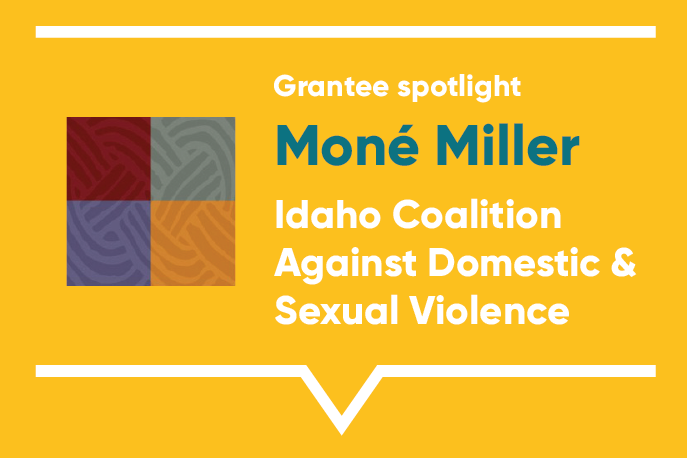RALIANCE’s latest round of grantees are all focused on preventing sexual violence in communities with unique needs – and the Idaho Coalition Against Sexual & Domestic Violence is no exception. RALIANCE’s grant will support the Idaho Coalition’s development of a prevention program for youth in the juvenile criminal system.
We sat down with Moné Miller, a social change legal advocate at the Idaho Coalition, to learn more.
RALIANCE: Tell us about the Idaho Coalition’s mission.
Miller: The Idaho Coalition Against Sexual & Domestic Violence works to be a leader in the movement to end violence against women and girls, men and boys – across the life span before violence has occurred – because violence is preventable.
Our goal is to create healthy relationships and compassionate communities by building the capacity of programs, organizations, and systems to provide safe, compassionate, trauma-informed, inclusive, and accessible services – all while increasing offender accountability.
RALIANCE: How will the RALIANCE grant project will help you achieve this mission?
Miller: Girls in the juvenile criminal system are impacted by sexual violence at alarming rates before, during, and after incarceration. Furthermore, girls who are Black, Indigenous, people of color, or LGBTQ are disproportionately impacted by sexual violence and the criminal legal system.
The RALIANCE grant project – called the Lupine Circle Project – will help us to center the voices and lived experiences of girls who are incarcerated. Lupine Circle will work with girls in a state juvenile correctional facility through what we call “reimagining circles.” Circle members will collectively identify needs, hopes, and a shared vision for a future free of sexual violence. Supported by Idaho Coalition staff, and in partnership with the Idaho Department of Juvenile Corrections, Lupine Circle participants will inform bold strategies to build a future free of violence in their communities.
By collaborating with each other, sharing their stories, and creating a guide for prevention, participants will have opportunities to heal and grieve with each other, and embrace their own power.
Through this project, we hope to create a replicable model of prevention programming that’s rooted in the experience of those who have been impacted – to that end, we will share our experiences in a program guide to help other communities launch their own circle projects.
RALIANCE: Why are young people in Idaho’s juvenile detention system in need of specific support?
Miller: Idaho’s youth in juvenile detention are facing a systemic crisis: Idaho is fifth in the country for the highest incarceration rates of young women and girls. The disturbingly strong correlation between sexual violence and incarceration means that a high percentage of Idaho’s girls in juvenile correctional facilities are likely survivors. This crisis has driven us to support young girls in detention by building their resiliency, empowering them to identify what safety looks like moving forward, and helping them to heal from their experiences in community with each other.
RALIANCE: What are you hoping to learn from this project?
Miller: Incarcerated youth have rarely been the central focus of prior campaigns in the sexual violence prevention field. Lupine Circle will add to our collective knowledge by identifying the specific challenges and needs of this community. We can’t learn the way forward if we aren’t listening to the voices of those who have been impacted. We’ll know we’re making progress by talking to our community. When young girls in juvenile detention share that they have the tools to identify what safety looks like for them, we’ll know we’re on the right track.
RALIANCE provides consulting, assessment, and employee development services to help build more equitable workplace cultures and create environments free from sexual harassment, misconduct and abuse. We stand ready to support your organization’s goals – contact us today at info@raliance.org to get started.

